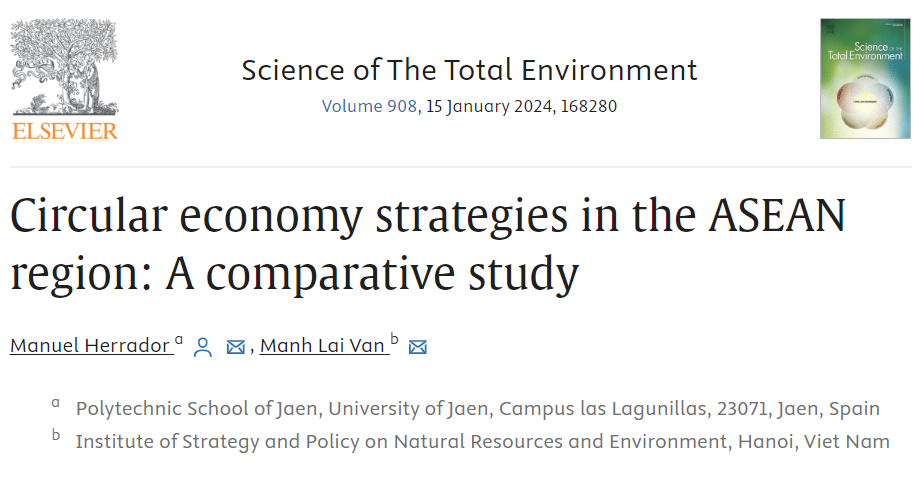The circular economy, or CE, is a sustainable development paradigm that minimises environmental impacts while promoting economic growth through resource efficiency, closed-loop systems, and waste reduction. As the detrimental effects of linear consumption patterns become more evident, CE is becoming more and more popular on a global scale. As a result of the region’s rapid economic growth and urbanisation, which has increased resource consumption and waste generation and made CE essential to protecting their natural resources and ecosystems, the ASEAN (Association of South East Asian Nations) countries have shown a growing interest in CE. With an emphasis on quality and anticipated effects and the exclusion of out-of-date policies, the technique evaluated and contrasted scholarly sources with CE policy papers.
The most important finding of this work is that, even though many policy strategies are either being approved or are currently under review, Vietnam is the most promising country for implementing circular economy policies. This work compares the ten ASEAN countries and offers a thorough assessment of the strategies for CE to understand the current direction of circularity throughout the region, which is insufficient. The least progressing nations are Burma, Laos, and Brunei; the remaining countries are all making enough progress. This study begins by outlining the most critical environmental concerns facing the ASEAN area and providing a basic explanation of the idea of CE. Second, it evaluates each country’s most notable and recent CE policies. Thirdly, it compares the ten states concerning their CE accomplishments and addresses how CE might handle their issues to be catalysed into opportunities. Foreign investors, the general public, academics, and policymakers will find this work intriguing.
Download Full Article Please Visit: https://www.sciencedirect.com/science/article/pii/S0048969723069073


